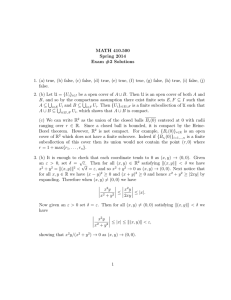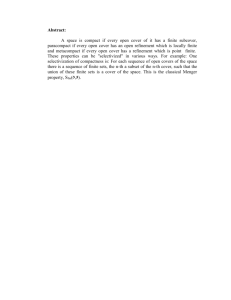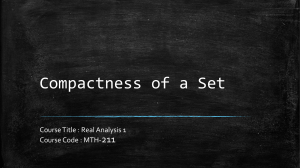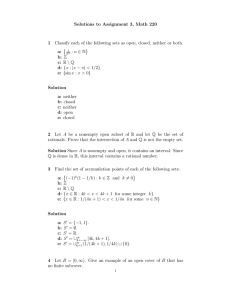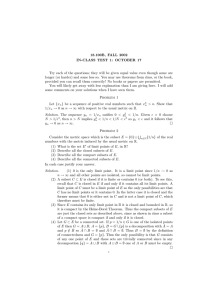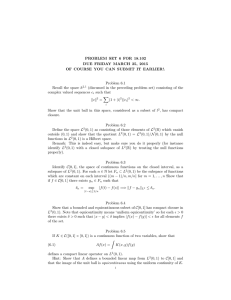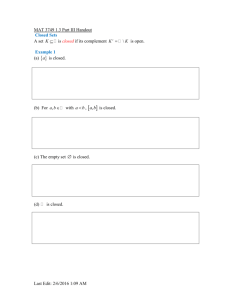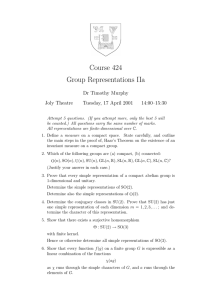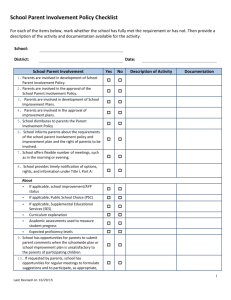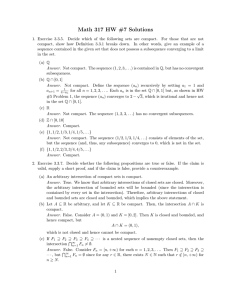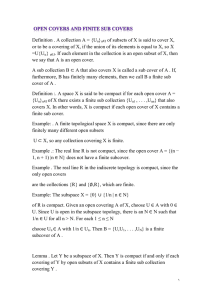Math 3220-1 Midterm 1, September 30, 2015 Solutions
advertisement
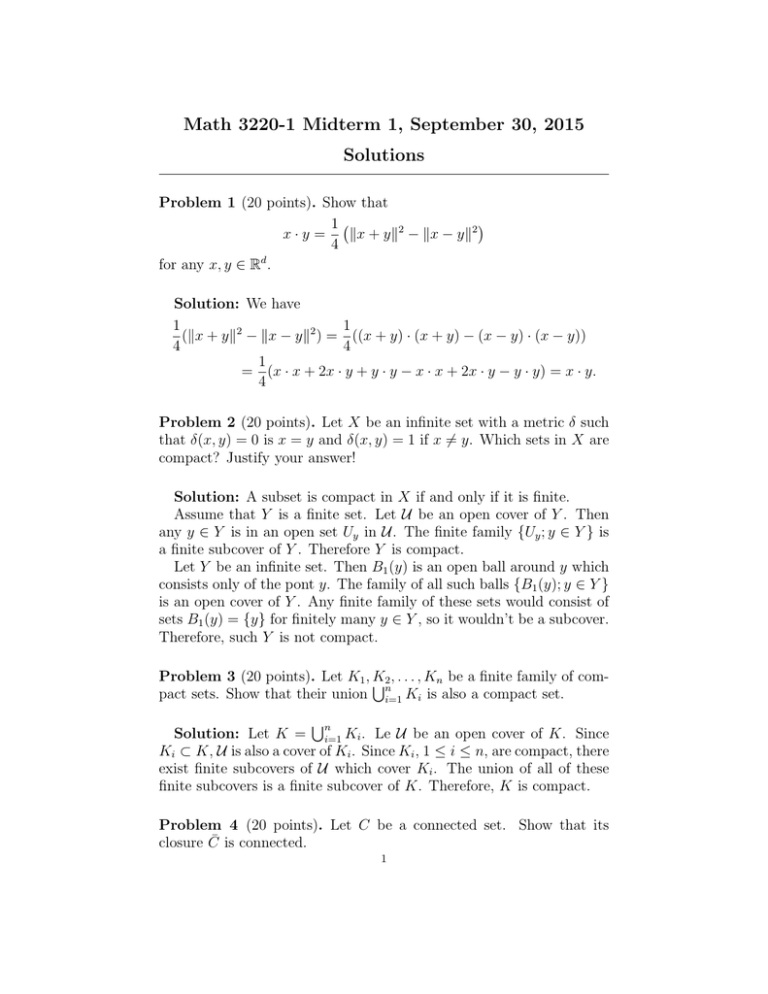
Math 3220-1 Midterm 1, September 30, 2015
Solutions
Problem 1 (20 points). Show that
1
x·y =
kx + yk2 − kx − yk2
4
d
for any x, y ∈ R .
Solution: We have
1
1
(kx + yk2 − kx − yk2 ) = ((x + y) · (x + y) − (x − y) · (x − y))
4
4
1
= (x · x + 2x · y + y · y − x · x + 2x · y − y · y) = x · y.
4
Problem 2 (20 points). Let X be an infinite set with a metric δ such
that δ(x, y) = 0 is x = y and δ(x, y) = 1 if x 6= y. Which sets in X are
compact? Justify your answer!
Solution: A subset is compact in X if and only if it is finite.
Assume that Y is a finite set. Let U be an open cover of Y . Then
any y ∈ Y is in an open set Uy in U. The finite family {Uy ; y ∈ Y } is
a finite subcover of Y . Therefore Y is compact.
Let Y be an infinite set. Then B1 (y) is an open ball around y which
consists only of the pont y. The family of all such balls {B1 (y); y ∈ Y }
is an open cover of Y . Any finite family of these sets would consist of
sets B1 (y) = {y} for finitely many y ∈ Y , so it wouldn’t be a subcover.
Therefore, such Y is not compact.
Problem 3 (20 points). Let K1 , K
S2n, . . . , Kn be a finite family of compact sets. Show that their union i=1 Ki is also a compact set.
S
Solution: Let K = ni=1 Ki . Le U be an open cover of K. Since
Ki ⊂ K, U is also a cover of Ki . Since Ki , 1 ≤ i ≤ n, are compact, there
exist finite subcovers of U which cover Ki . The union of all of these
finite subcovers is a finite subcover of K. Therefore, K is compact.
Problem 4 (20 points). Let C be a connected set. Show that its
closure C̄ is connected.
1
2
Solution: Assume that C̄ = A ∪ B such that A and B are relatively
open in C̄ and A ∩ B = ∅. Then
C = (A ∩ C) ∪ (B ∩ C),
A ∩ C and B ∩ C are relatively open in C and (A ∩ C) ∩ (B ∩ C) = ∅.
Since C is connected, either A ∩ C or B ∩ C has to be empty.
Assume that B ∩ C is empty. Since B is relatively open in C̄, B =
U ∩ C̄ for some open set U . Therefore, B ∩ C = U ∩ C̄ ∩ C = U ∩ C
is empty. Since U is open, U ∩ C = ∅ implies that the closed set
Z = X − U contains C. Therefore, Z contains also the closure C̄ of C,
i.e., B = C̄ ∩ U = ∅. Therefore, C̄ must be connected.
Problem 5 (20 points). Is the function f : R2 − {(2, 0)} −→ R given
by
1
f (x, y) =
(x − 2)2 + y 2
uniformly continuous on B1 (0, 0)? Justify your answer!
Solution: The function f is continuous everywhere on R2 −{(2, 0)}.
Therefore, it is continuous on the closed ball B̄1 (0, 0) of radius 1 centered at (0, 0). Since that ball is compact, the function is uniformly
continuous on it. Therefore, it is uniformly continuous on the subset
B1 (0, 0) of B̄1 (0, 0).
